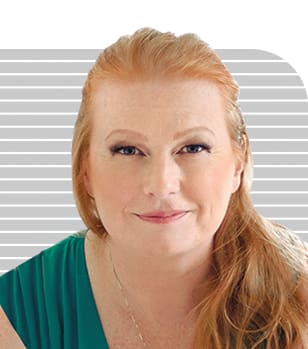financial connection

© LIGHTFIELD STUDIOS / STOCK.ADOBE.COM
Home schooling
Understanding a parent’s role in modelling financial responsibility
by Lana Sanichar
When we were children, our first personal finance lessons were taught to us by our parents. Now that many of us are parents, our kids are learning from us about financial matters. Even though some financial literacy is taught in schools, parents are certainly the first educators in this area, with those lessons continuing throughout the teen and young-adult years.
In my September column, Fred Masters, former professional educator and president of Masters Money Management Inc., noted that understanding and acting on the “earn, save, invest cycle” is a crucial element of personal financial success for young people.
Here’s a look at each of the elements of that cycle so that we’re better able to talk about and model financial responsibility with our teens and young-adult children.
Earn. Finding work that we love is important because it opens the door to lifelong learning, which leads to specialization and increased earnings potential. It’s worth noting that experiential learning programs at both the secondary and post-secondary levels help students make better career path decisions.
Save. It’s critical to save on a regular basis. The best way to do this is to automate the process. Automatically move money after each pay period to one or more savings accounts so as to save for financial goals.
Invest. For post-secondary school costs, parking dollars in risk-free savings accounts is the only way to go. When it comes to reaching long-term goals such as retirement, the earlier you start investing, the better.
Teaching kids about money is not an easy task. Even though I’ve tried my best to instill the concepts of earning, saving and investing in my children, my 22-year-old struggles repeatedly with the concept of saving. But practice makes (somewhat) perfect, and I will continue to talk about money with him daily. So, don’t be discouraged. Continue the conversation, and your children will eventually understand how money functions.
Please do your own due diligence when making any financial decisions. This column is for general informational purposes only and may not apply to all provinces. It is meant to get the reader thinking about their finances; it is not meant to be used in lieu of advice from a professional.
Financial education
According to the Financial Consumer Agency of Canada, almost half of Canadians engaged over the past five years in some type of financial education to strengthen their financial knowledge. This was most commonly by reading a book or other printed material consulting online resources or taking financial courses at work. Other strategies Canadians took part in included enrolling in in-person courses at a school or through a not-for-profit or community organization.—LS

Courtesy of Lana Sanichar
Lana Sanichar is president and editor-in-chief of Canadian MoneySaver magazine.
Through an exclusive arrangement, Canadian MoneySaver’s experts partner with the Costco Connection to share advice about relevant financial topics.
Email topic suggestions to moneyinfo@canadianmoneysaver.ca.
Costco members are offered a one-year special introductory price with on line subscription. Go to Canadianmoneysaver.ca and click on “Subscribe,” or call 519-772-7632. Online, use “Costco” for the discount code at the bottom of the page.

